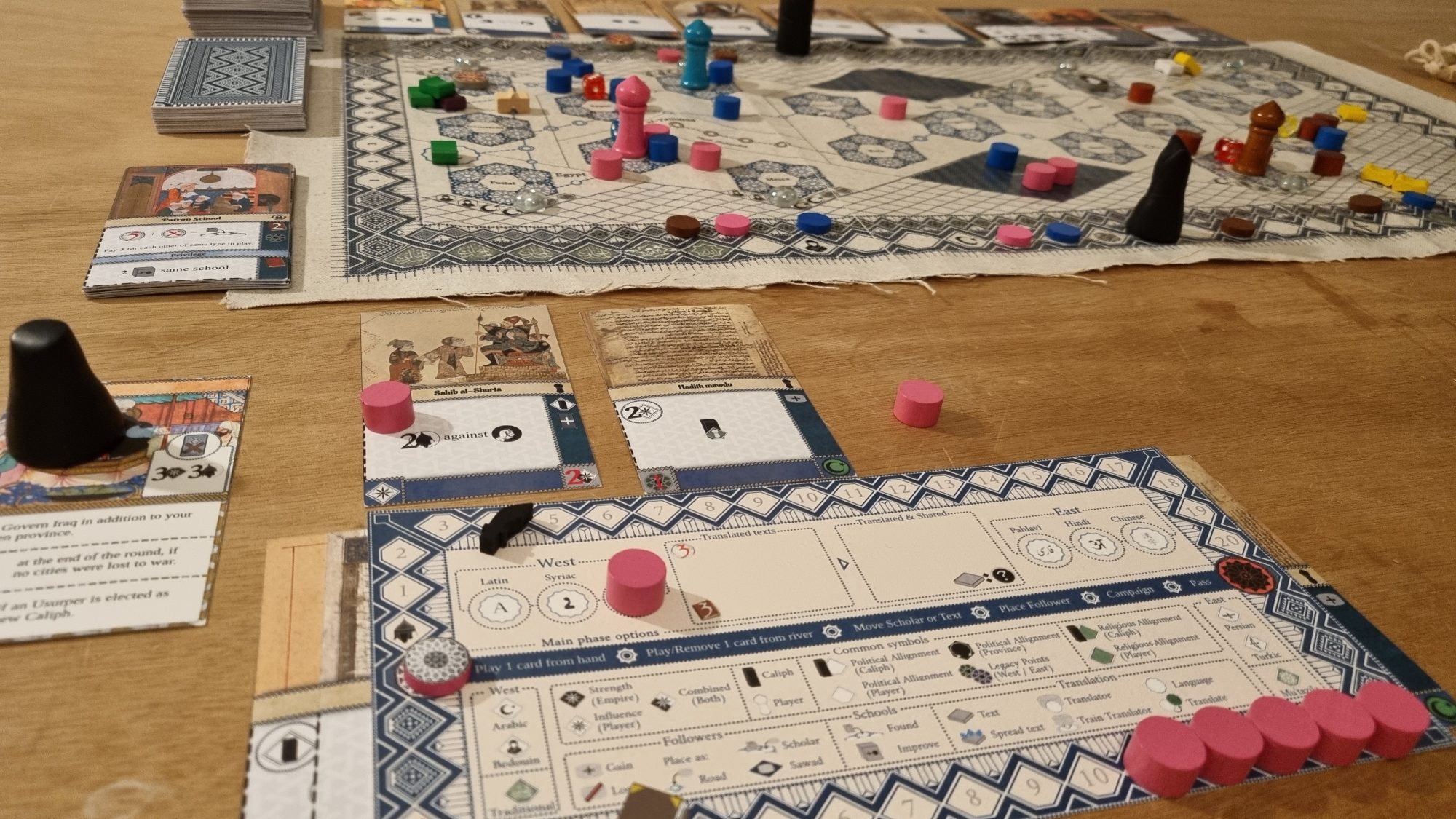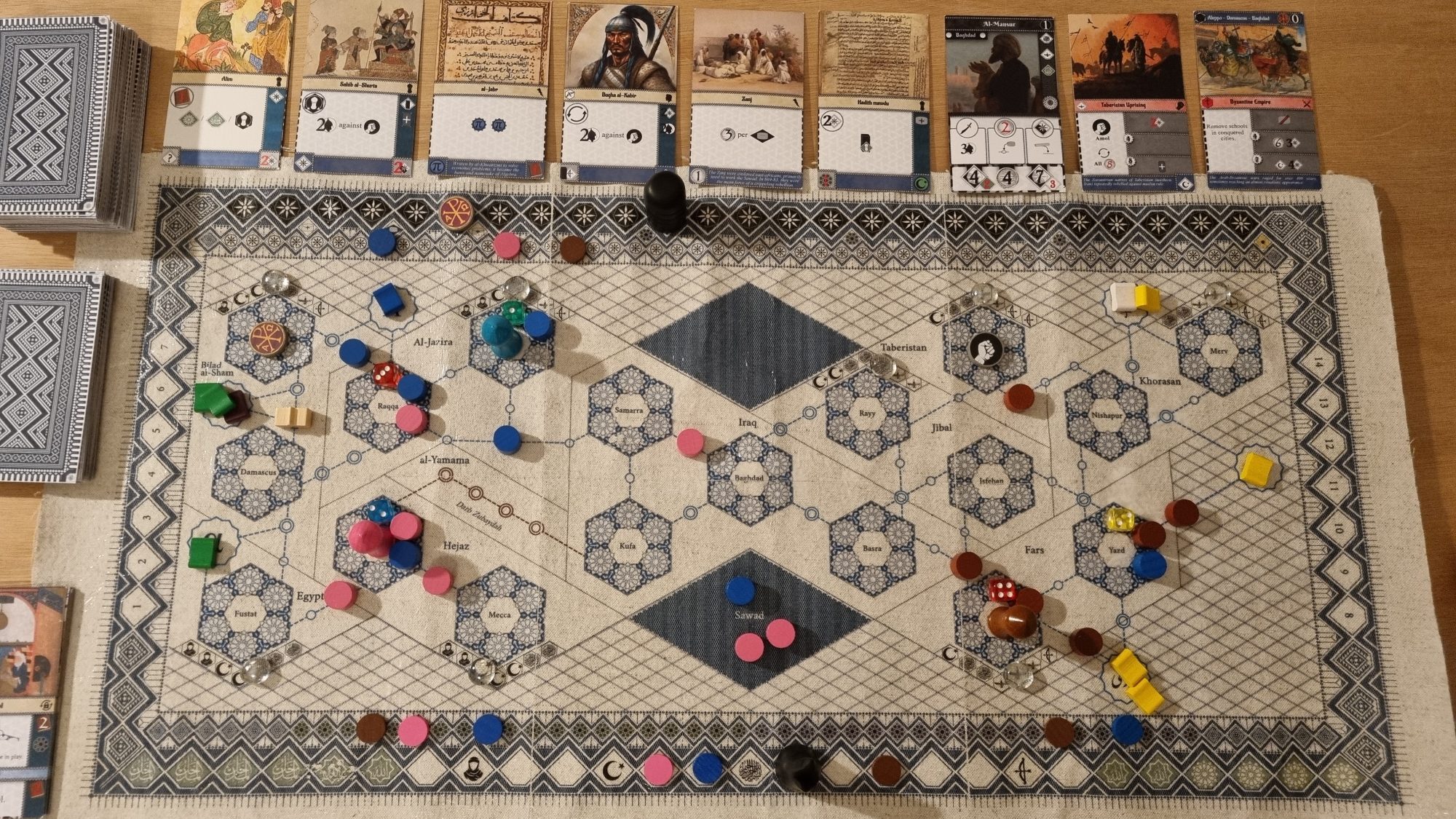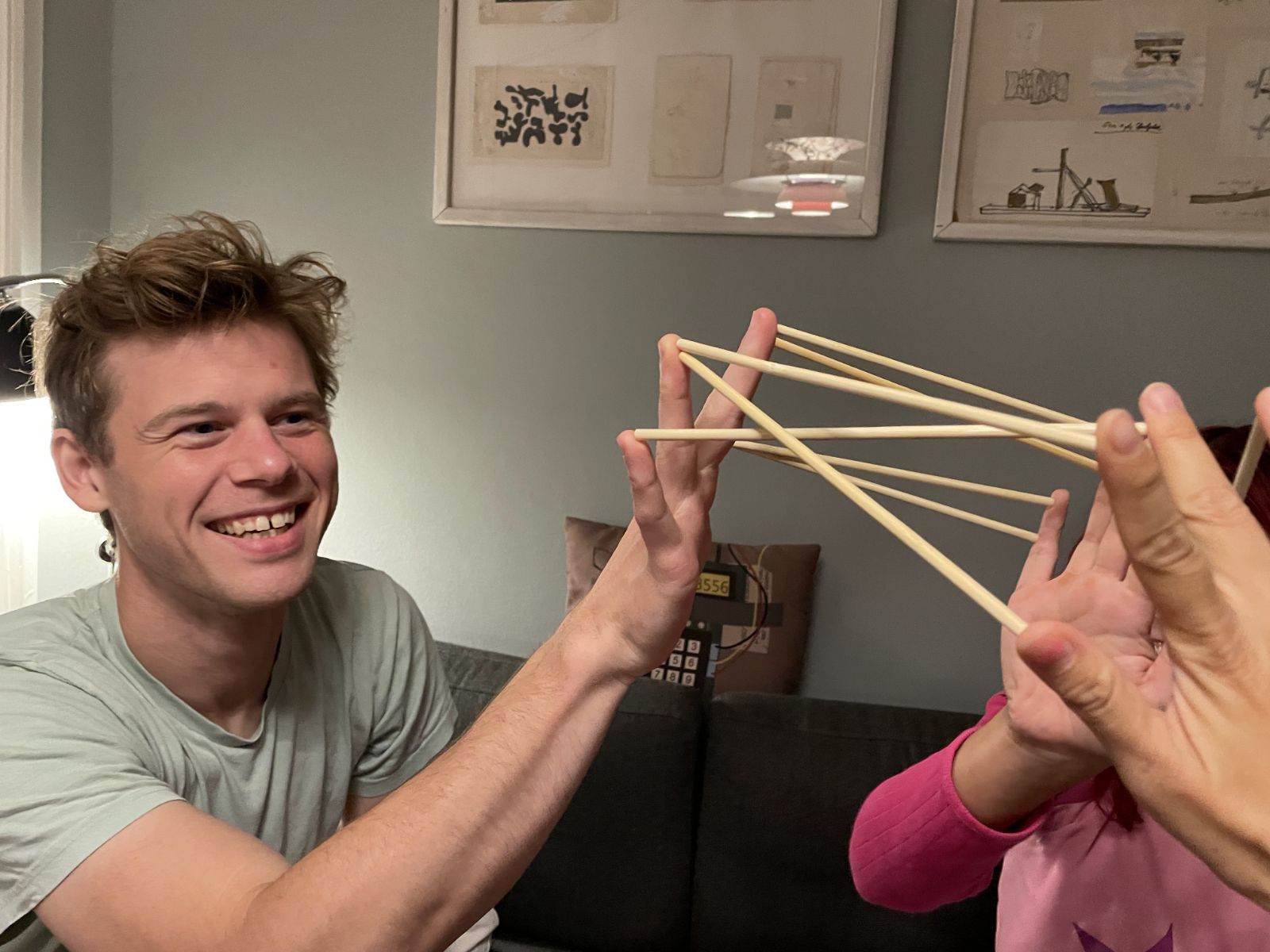af Aske Christiansen

I mere end 200 år var Baghdad verdens centrum. I Asabiyah tager man rollen som ambitøse familieoverhoveder, der skal balancere politik, religiøse og etniske konflikter og afværge invasioner af Kalifatet. I er fælles om et stabilt Kalifat – men I er også mæcener af videnskab og tro – og ikke alle vil blive husket lige godt af historien.
Foromtale
- Tid: 120-180 min
- Spillere: 2 – 5
- Sprog: Engelsk
Islam her taget verden med storm, og den netop opførte metropol Baghdad er blevet verdens centrum. I de næste to-hundrede år er Kalifatet hjem for Islams guldalder, hvor videnskab, teologi, poesi og filosofi blomstrer op og enorme mængder af tekster bliver importeret, oversat og studeret, i hvad nogle har kaldt ’den første renæssance’.
Men det enorme imperium indeholder modsætninger i overmål – en etnisk smeltedigel af folkeslag fra hele eurasien og en religion, der endnu ikke har fastlagt sin ortodoksi. Sammen med de enorme rigdomme der kan opnås, er det intet under at fred og stabilitet er en svær kunst.
I Asabiyyah (~Solidaritet i slægtskab) påtager spillerne sig rollen som ambitiøse familieoverhoveder, der skal navigere alle de sarte alliancer og interesser, alt imens familiens eftermæle skal sikres som mæcen for oversættelse og studier af videnskabelige tekster fra hele verden.
Men hvad nytter det at ens egen position i Kalifatet og historien er sikret, hvis Kalifatet falder? Spillerne skal derfor også arbejde sammen for at oprør og invasioner ikke tager overhånd, og vælter det dynasti der sikrer jeres beståen.
Medmindre selvfølgelig at det er netop dig, der kan vælte magten og blive amir al-umara – Emirernes emir?
Asabiyyah er et spil hvor man skal tænke strategisk, men handle taktisk. Den bundne opgave er at få etableret et eftermæle gennem udviklingen af tro og videnskab – men de politiske og religiøse vinde kan skifte på et øjeblik og erodere det grundlag man troede man stod på. Heldigvis er det aldrig for sent at skifte til den rette tro og alliance.
Spillet centrerer sig om et kollektivt deck-building element med en ’følge’ mekanik, hvor spillede kort kan ’kopieres’ af andre spillere, men med en fordel kun til den aktive spiller. Men alle handlinger har følgevirkninger – politiske eller religiøse effekter der påvirker spillernes ståsted.
Bemærk: Spillet indeholder elementer af slaveri og forfølgelse af religiøse minoriteter/modstandere. Jeg har ikke ønsket at ’renskure’ historien, men håber samtidig at jeg er lykkedes med at fremstille det respektfuldt, som en del af den komplekse historie spillet prøver at illustrere. Konstruktiv kritik modtages med kyshånd.


Om designerne

Jeg er passioneret spildesigner, der efter et ’best-seller’ hit har valgt at gøre det svært for mig selv ved at dykke ned i komplekse spil om konflikt og historie. Efter mine seneste to Fastaval spil – 2023s ’Lies upon lies’ og dette års ’Asabiyyah’, hvor jeg har researchet løs om spionagemetoder, bilbomber og kommunistisk propaganda, og nu om sharia, islamisk teologi og sunni-ekstremisme har jeg om ikke andet fortjent min helt egen PET agent (Hej Ulrik!), men også et af mine stolteste øjeblikke med tildelingen af en Otto for bedste innovation.

Kasper har spillet brætspil i mere end 40 år. Uddannelsen indenfor informationsvidenskab fordrer, at han elsker at dekonstruere spil for at undersøge hvad der gør spillet større end summen af dets dele. Kasper foretrækker strategispil med historiske træk og tydelig inkorporeret tematik. Hans første Fastaval brætspilsdesign ”Witch Hunt” vandt en Otto for bedste brætspil og blev udgivet som “Pagan: Fate of Roanoke” i 2021.



